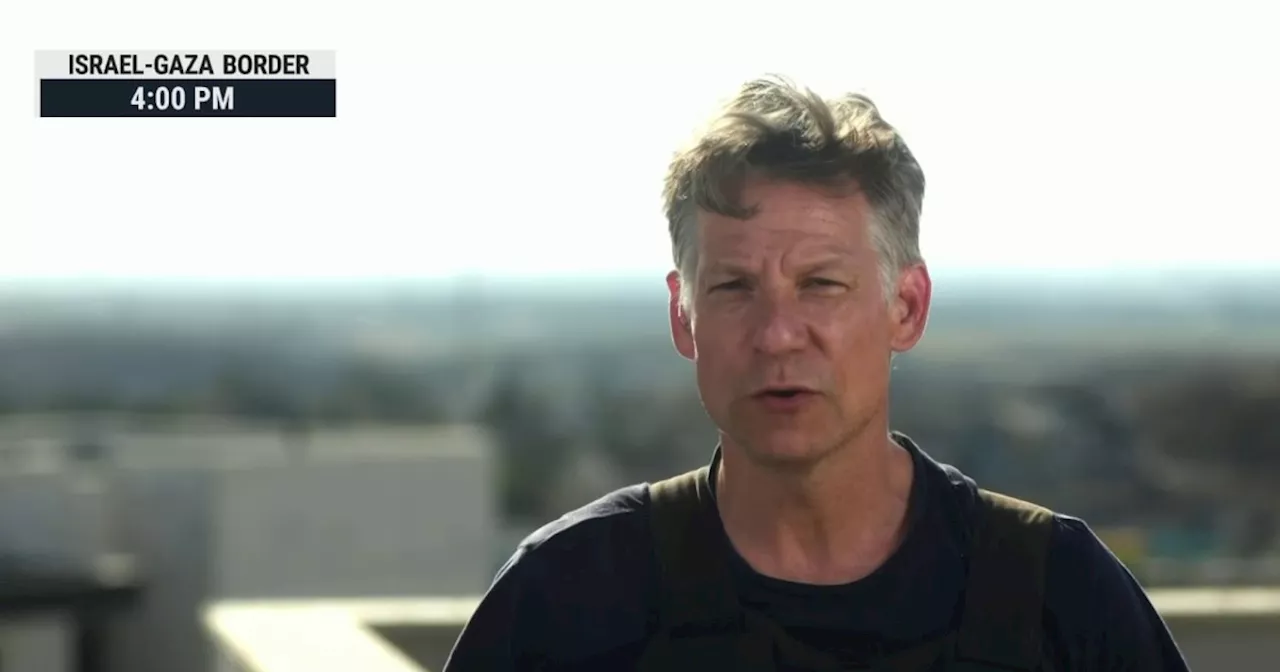Richard Engel Hostage: A Journey Through Danger and Resilience

Introduction
In a world where journalists often find themselves on the frontline of conflict, the story of Richard Engel stands out as a testament to the courage and resilience of those who seek to uncover the truth. Engel, an NBC News chief foreign correspondent, became a household name not just for his reporting from war-torn regions but also for his harrowing experience as a hostage in Syria. This article will delve into Engel's abduction, the circumstances surrounding it, and the broader implications for journalists operating in dangerous environments. Understanding his story is crucial as it highlights the risks faced by reporters and the importance of press freedom in today's world.
The Context of Engel's Abduction
Who is Richard Engel?
Richard Engel is a seasoned journalist with a career spanning over two decades. Known for his on-the-ground reporting from conflict zones, Engel has covered significant events—from the Iraq War to the Arab Spring. His dedication to journalism has earned him multiple awards, including the Edward R. Murrow Award for his reporting in Iraq.
The Syrian Civil War
Engel's abduction occurred against the backdrop of the Syrian Civil War, which began in 2011. The conflict has led to a humanitarian crisis, with millions displaced and countless lives lost. Journalists like Engel play a critical role in bringing these stories to light, often at great personal risk.
Engel's Kidnapping: Timeline of Events
- December 2012: Engel and his crew were abducted while covering the conflict in Syria. They were captured by a group of armed men while traveling near the Turkish border.
- Days of Uncertainty: Engel and his crew were held for several days in captivity, during which the situation was dire. They faced threats and were subjected to harsh conditions.
- Escape and Rescue: Engel and his crew managed to escape their captors during a chaotic firefight between rival factions, demonstrating their resilience and quick thinking.
The Impact of Engel's Experience
Psychological Toll on Journalists
Engel’s ordeal sheds light on the psychological effects of being held hostage. Many journalists suffer from PTSD and other mental health issues after such traumatic experiences. Engel himself has spoken about the lingering effects of his kidnapping, emphasizing the importance of mental health support for journalists.
Media Coverage and Public Awareness
Engel's story brought greater awareness to the dangers journalists face, particularly in conflict zones. His reporting has highlighted the need for:
- Enhanced safety protocols for journalists in the field.
- Support networks for those who have experienced trauma.
- Public understanding of the challenges faced by the media.
Press Freedom and Its Challenges
Engel's kidnapping also raises important questions about press freedom. In many regions, journalists face threats not only from armed groups but also from governmental entities. The implications of Engel's experience stress the need for:
- Stronger protections for journalists working in perilous situations.
- Advocacy for press freedom on a global scale.
Lessons Learned from Engel's Hostage Situation
Safety Measures for Journalists
Engel's experience underscores the importance of safety measures for journalists. Here are some critical steps that can enhance safety:
- Pre-Deployment Training: Journalists should undergo training on how to handle hostile situations, including escape tactics and negotiation strategies.
- Risk Assessment: Media organizations must conduct thorough risk assessments before sending reporters into conflict zones.
- Emergency Protocols: Establishing clear protocols for communication and extraction in case of abduction can save lives.
The Role of Technology
Advancements in technology have transformed how journalists operate in dangerous areas. Tools such as encrypted communication apps and satellite phones can provide journalists with a lifeline in emergencies. Engel’s situation highlighted the necessity of leveraging technology for safety and communication.
The Importance of Support Networks
Journalists often work in isolation, which can exacerbate the psychological impact of traumatic experiences. Building support networks among journalists can provide a sense of community and help in the healing process. Engel has advocated for greater mental health resources for journalists, emphasizing that emotional well-being is just as crucial as physical safety.
Conclusion
Richard Engel’s experience as a hostage in Syria is a powerful reminder of the risks faced by journalists in pursuit of truth. His story not only highlights the courage required to report from dangerous locations but also emphasizes the pressing need for improved safety measures, mental health support, and advocacy for press freedom. As we reflect on Engel's journey, it is essential to recognize the sacrifices made by those who dedicate their lives to journalism. The world must continue to support and protect these brave individuals who strive to inform us, often at great personal risk. Let us honor their commitment by advocating for a safer environment for journalists everywhere.